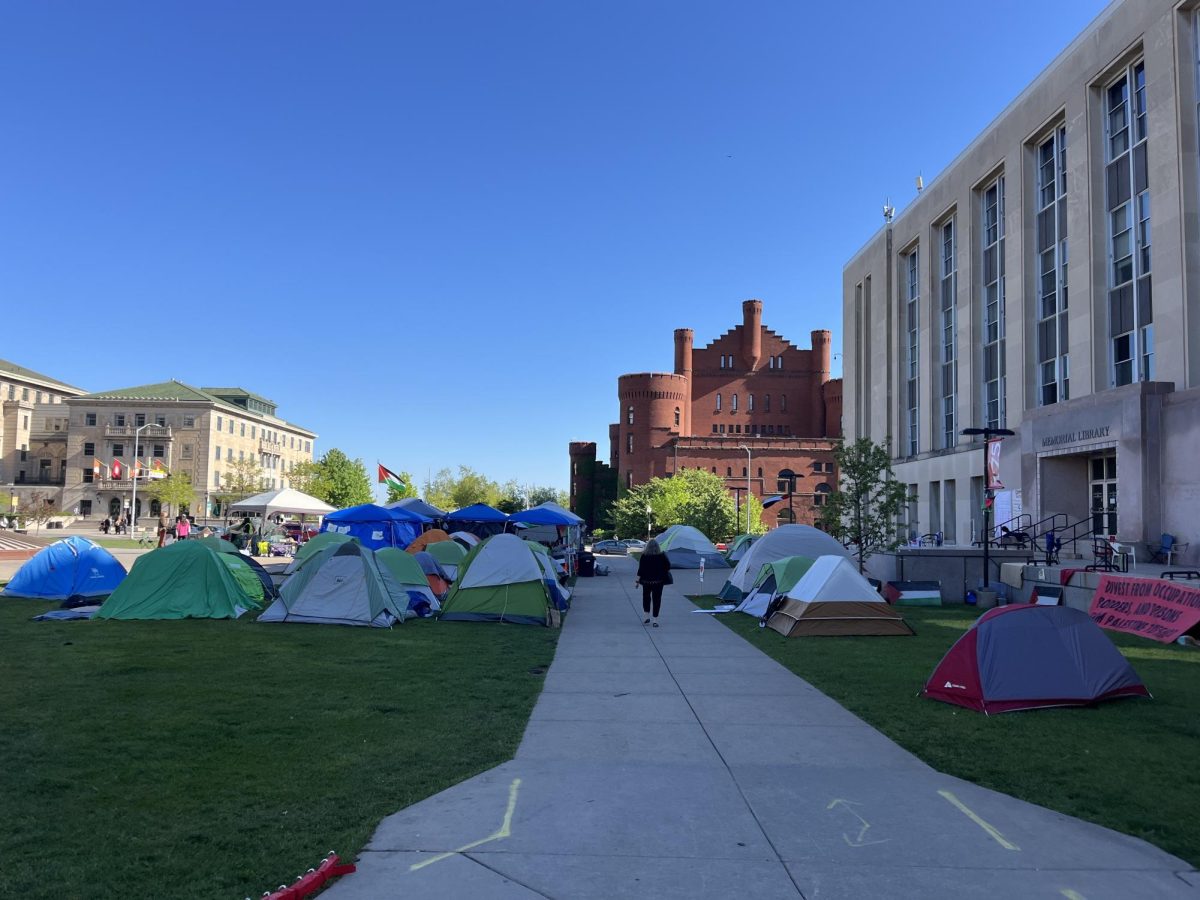[media-credit name=’BRYAN FAUST/Herald Photo’ align=’alignnone’ width=’648′] [/media-credit]A proposal that would allow the University of Wisconsin to suspend faculty members without pay if they are charged with a felony was met with strong criticism Monday by members of the UW faculty.
[/media-credit]A proposal that would allow the University of Wisconsin to suspend faculty members without pay if they are charged with a felony was met with strong criticism Monday by members of the UW faculty.
Claiming the proposal — drafted by the UW Board of Regents — violated their constitutional rights to due process and protection against self-incrimination, among other criticisms, the UW Faculty Senate voted to reject the proposal during its meeting Monday.
"There seems to be a tremendous concern over the amount of pay given to these individuals … over due process and fairness," UW Medical School professor Lawrence Kahan said while presenting a list of "issues" the Faculty Senate had with the regents' proposal.
The proposal comes in the wake of an external audit that discovered 40 employees currently under UW payroll system-wide were convicted felons. That audit was commissioned after it was discovered three of those 40 employees were UW-Madison professors.
Roberto Coronado, a UW Medical School professor, was convicted of child molestation in 2005 and is currently serving an eight-year prison sentence. L. Keith Cohen, a comparative literature professor, was found guilty of child enticement and sending explicit materials to a child over the Internet in 2005 and was sentenced to 30 days in prison and eight years probation. And Steven S. Clark, an assistant medical school professor, was also sentenced in 2005 to a one-year term for stalking.
Feeling pressure from the Wisconsin Legislature and the public to respond to these findings, the Board of Regents drafted an amended Chapter Seven of UW System policy regarding procedures for dismissing faculty.
UW Law School professor Walter Dickey, who sat on the Board of Regents committee that drafted the proposal, told the Faculty Senate that the Legislature would act on the issue if the university did not.
"It's highly desirable to have a rule made by the university than a rule by the Legislature," Dickey said.
The proposed policy would allow the provost to suspend a UW faculty member without pay if he or she was "charged" with a felony and there was "substantial likelihood" the faculty member committed the alleged crime.
The proposal added that an investigator appointed by the provost would lead the investigation and that the burden of proof would be a "preponderance of evidence," not "clear and convincing evidence."
"They're reducing the burden of proof," Kahan said. "It's a lowering of standards by which faculty will be judged."
The amended proposal would also require UW faculty members to report to the provost if they "engaged" in "serious criminal misconduct."
Kahan said this violated faculty members' constitutional right to protection against self-incrimination.
"It's a severe and unnecessary, completely unnecessary, requirement placed on the faculty," Kahan said.
Faculty members also criticized the time frames incorporated in the proposal.
According to the proposal, faculty members facing dismissal would be allowed a hearing in front of an "institutional standing" committee, which would then have 15 days to hear arguments for the case, make a ruling and draft a decision on the matter.
Faculty members said it would be "impossible" for a committee to accomplish this in only 15 days.
Other criticisms voiced about the proposal included how the university would differentiate between the levels of criminal activity that would constitute dismissal, as well as the issue of suspending a faculty member without pay.
Kahan called the suspension of pay "egregious," saying the university needed to allow faculty members to finance a defense.
Dickey responded to these criticisms by saying the faculty needed to understand the pressure facing the university in the face of the three high-profile cases of UW professors being convicted felons.
"There's a great big world out there that may not see this in convenience of the faculty," Dickey said, adding the public is not sensitive to the university when people who "in all likelihood" committed a felony continues to be on the payroll.
"People who have that concern, have that concern," Dickey said.










